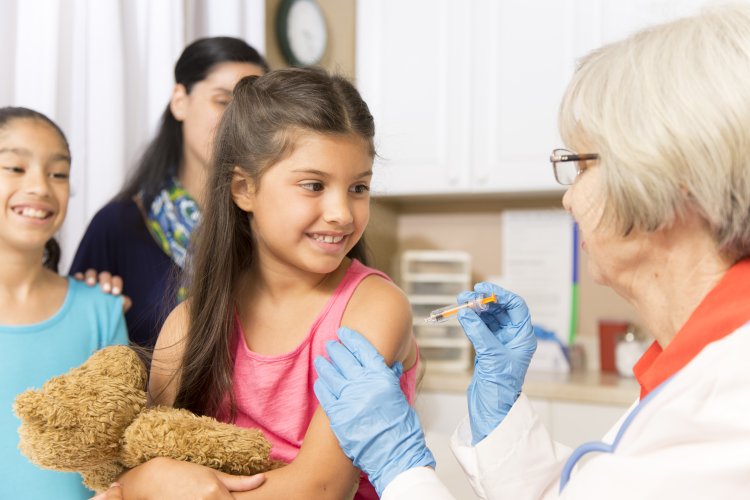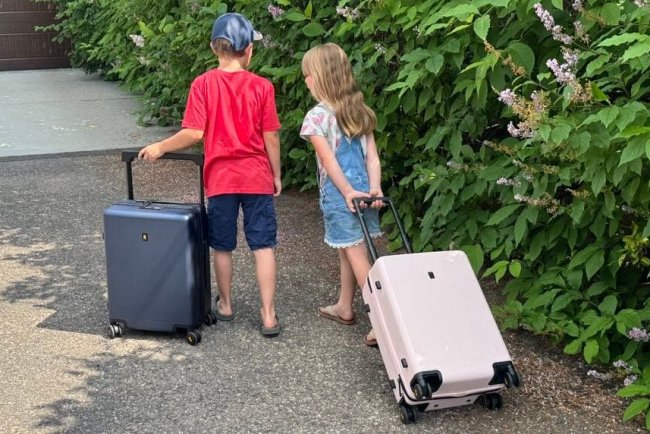Why Parents Fear Vaccines And Why That Fear Could Be Deadly
There are certain things we assume belong to the past: rotary phones, floppy disks, smallpox, measles.

But here we are in 2025, staring down the largest U.S. measles outbreak in more than 30 years. By late July, more than 1,100 cases had been reported across 30 states. That’s the highest number since 1992 and shockingly, it comes decades after measles was officially declared eliminated.
If that doesn’t make your stomach drop, it should.
Measles isn’t just “a rash and a fever.” It’s a virus that lingers in the air long after an infected person has gone, and it can spiral into pneumonia, seizures, brain swelling and even death. It’s ruthless. And yet, unlike most health crises, we actually have the power to stop it in its tracks: vaccines.
Most Kids Are Protected But Cracks Are Showing

The truth is, most American kids are already vaccinated. Only about 1% have received no shots at all. On paper, that sounds reassuring. But diseases don’t read percentages.
For measles, we need about 95% of people immune to creating herd immunity, a protective barrier that shields newborns, kids battling immune disorders, and others who can’t safely get vaccines. When enough families say “no,” that shield shatters. All it takes is one infected traveler stepping off a plane, and suddenly an outbreak blooms in a community that thought it was safe.
That’s how measles finds its way back.
Fear Spreads Faster Than Facts
Here’s the hard part: most parents who hesitate aren’t reckless. They’re scared. Fear is viral, too. A story whispered in a mom’s group, reposted on Facebook, or shared in a TikTok can spread much faster than the science that disproves it.
And once fear takes root, doing nothing feels easier than doing something. But with vaccines, doing nothing isn’t neutral. Doing nothing means leaving kids your own, and your neighbor’s exposed.
What Parents Tell Me They Worry About

As a pediatrician, I’ve had countless heart-to-hearts with moms and dads who sit across from me, anxiety written all over their faces. Here’s what they usually say:
1. “What about side effects?”
Yes, vaccines can cause side effects. A sore arm. A low fever. Fussiness. But serious side effects? They’re rare. There’s even a public database, VAERS, where every reaction, even the mildest one is logged for transparency.
2. “But what about autism?”
This one lingers like smoke. The timing is what confuses people: autism signs often appear around the same age when vaccines are given. But timing isn’t causation. Study after study, across decades and continents, has shown no link between vaccines and autism. Zero.
3. “Aren’t there toxins in shots?”
Words like aluminum and thimerosal get thrown around like poison labels. Context matters. Thimerosal a preservative with mercury was removed from nearly all vaccines 20 years ago, despite never being proven harmful. Aluminum salts? They’re there to make vaccines work better, and babies encounter more aluminum in breast milk or formula than in their shots.
4. “Aren’t we giving too many, too soon?”
Yes, today’s vaccine schedule looks heavier than in decades past. But babies’ immune systems aren’t delicate glass. Every day, infants encounter thousands of antigens from the world around them dirt, food, air, the family dog. Vaccines aren’t an overload; they’re a rehearsal, a safe preview so the immune system can practice before a dangerous infection shows up.
The Truth We’ve Forgotten

Vaccines are victims of their own success. They’ve erased so many deadly illnesses from daily life that we’ve forgotten how terrifying those diseases were.
Polio paralyzed children by the thousands. Hib meningitis killed toddlers. Chickenpox scarred kids for life and sometimes landed them in the ICU. We barely remember those battles, because vaccines won them for us.
But those diseases haven’t gone extinct. They’re waiting — and they’re only too eager for us to let our guard down.
Fear in the Right Direction
It’s normal to be afraid. That’s what love for your child looks like in action. But fear has to be aimed at the right enemy. Not the quick sting of a needle. Not the tiny chance of a side effect.
The real fear should be the sight of a child gasping for air in an ICU with a disease we could have prevented.
Measles isn’t waiting for us to “make up our minds.” It’s already here, multiplying week after week, looking for cracks in our defenses.
So the choice we face as parents is stark, but simple:
Do we fear the needle? Or do we fear the funeral?
Because history has already taught us which one is truly unbearable.
What's Your Reaction?




















